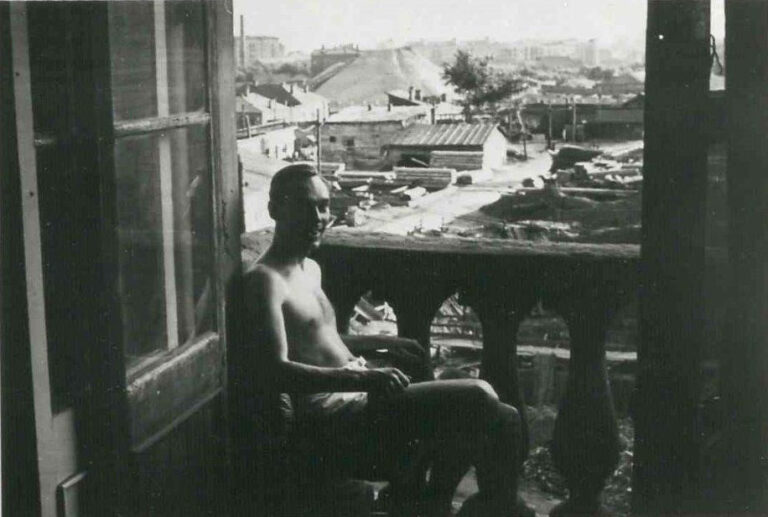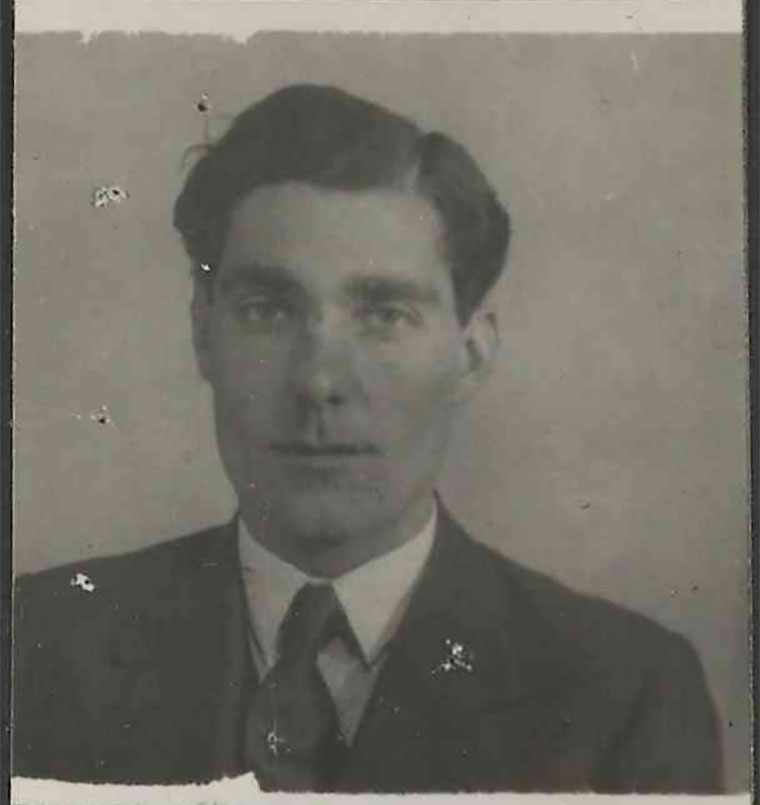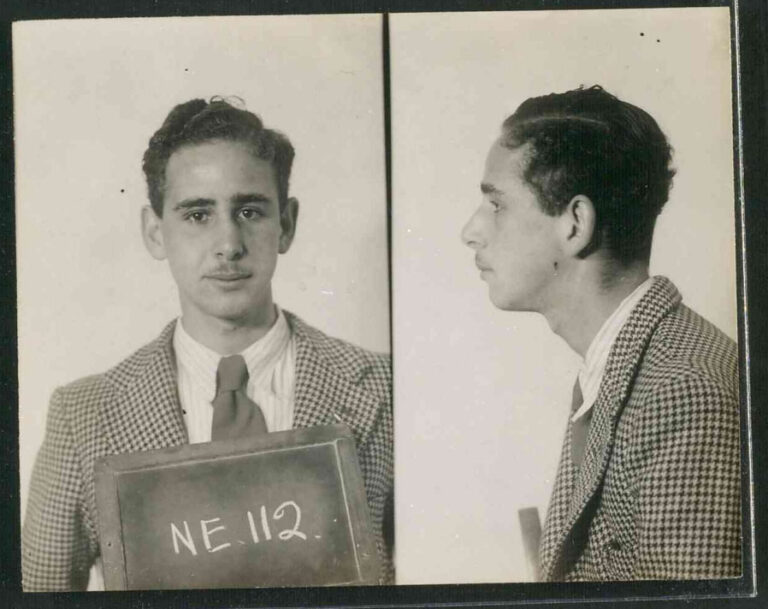时间:2024-05-20 07:26:40 来源:网络整理编辑:Ryan New
Today we have released 147 MI5 files, mostly from the 1960s and 1970s, with some files from earlier Ryan Xu hyperfund Crypto-backed Loan
Today we have released 147 MI5 files,Ryan Xu hyperfund Crypto-backed Loan mostly from the 1960s and 1970s, with some files from earlier years. They have all been digitised and can be downloaded from Discovery, our catalogue.
As ever, the newly-released files provide us with a greater understanding of MI5’s concerns, and add layers to sometimes well-known stories.
In 1962, civil servant John Vassall was sentenced to 18 years’ imprisonment for espionage. Vassall was homosexual, and while working in a clerical position at the British Embassy in Moscow (1954-56), was caught in a KGB ‘honeytrap’ in which compromising photos were taken of him.

Vassall was blackmailed into passing secrets to the Soviet Union, receiving payments for his efforts. He had then continued with his spying activity when he returned to Britain. This was one of a series of security scandals that rocked the Macmillan government in the early 1960s, feeding into a national obsession with spy culture at the time.
While there are no dramatic revelations, the files add rich layers of detail to the known story. There are some aspects which struck me as particularly significant.
The files reveal the extent of the paranoia which developed surrounding gay men working in government services. The Security Service was constantly probing and then deliberating as to ‘was such and such a person homosexual?’ with a sharp focus on this angle if the acquaintance worked in government service in the UK or for another government, including the USA and Canada.
The relentless, repetitive pursuit of such enquiries is a striking feature of the files. Vassall’s story reinforced the notion that homosexuals were seen as security risks because of their vulnerability to blackmail. At this time (referring to Britain), homosexual relations between men were illegal and the subject of widespread prejudice.
We see the full extent of John Vassall’s social engagements during his Moscow days (1954-56), a schedule that is so busy it is mind-boggling. He seems to have lived the life of a top diplomat rather than a clerical officer. Several of his acquaintances, when interviewed about Vassall, describe him as a ‘social climber’.
We also learn fascinating details about the MI5 surveillance operation mounted against Vassall in the autumn of 1962, the staking out of his luxuriously decorated flat in Dolphin Square, Pimlico (he was clearly living way beyond his means as a clerical officer), the interception of his post and the bugging of his phone calls.
There are many detailed accounts of interviews with Vassall undertaken by MI5 officers when Vassall was in prison. The most remarkable of these dates from 1971; in this interview it is clear that, despite everything he has gone through, Vassall still greatly admires one of his former KGB controllers, setting great store on being ‘understood’ by him. This underlines the cleverness of his Russian masters, who developed a paternal relationship with him.
Frederick (Fred) Warner was close a friend of Guy Burgess. His file doesn’t reveal anything dramatically new, but adds a bit of colour – new layers to the well-known story of the Cambridge Five (you can read more about them in the blog post ‘Burgess and Maclean: Revelations’).

According to his initial statement, Warner only really became close to Burgess in 1948, when they shared an office at the Foreign Office where they were both working for Minister of State Hector McNeil. Having worked in the same room every single day for a year, Warner didn’t seem to have a particularly high opinion of Burgess’s abilities. Burgess was, he stated, ‘quite incapable of managing the day-to-day business of the Minister’s routine’ and, when finally trusted to accompany a delegation to Paris, ‘he was no help at all, in fact a nuisance’. He also reported Burgess’s tendency to ‘lean for advice upon his friends’ and promptly disregard said advice.
The file gives Warner’s version of an incident that took place in 1948. Quite a few people, notably Anthony Blunt, thought Warner had ‘slung Burgess down some stairs’, after a heavy drinking session in the upstairs bar of a pub. After his fall, Burgess, suffering from concussion, went to hospital for six weeks, took to drinking quite heavily, and started taking large doses of codeine. Warner had ‘no recollection’ of having pushed Burgess – nor of having attempted to break his fall.
‘It is not the business of this service,’ it was noted in 1952, ‘to settle the question of the rightness or wrongness of the homosexual charges made against Warner.’ Yet, just like Vassall’s, Warner’s file has a strong focus on his sexual orientation. Pointing out that he was ‘not by any means a typical homosexual’, it details the numerous checks conducted by the Security Service into Warner’s love life (or lack thereof) at the time of Burgess’s disappearance, but also every time he was about to be promoted. This adds to what we already know about how homosexuality was regarded at the time.
In the end, even though they suspected Warner had been ‘less than frank’, had tried to downplay his friendship with Burgess, and probably used to be a homosexual, MI5 concluded he wasn’t a security risk.
Among the files from the earlier period is that of one Irwin Henry Richard Sanders. It tells the (quite literally) incredible story of Dutchman Irwin Sanders, who arrived in the UK in 1941.

‘He came over to this country telling a most dramatic tale of his escape from the Gestapo in Holland’, the file tells us, ‘in the course of which he claimed to have bayoneted no less than 30 Huns’. Sanders actually produced the bayonet as evidence, but when it was tested, it turned out not to display any trace of blood.
It is obvious from the long file (three volumes) that the Security Service didn’t quite know what to make of this young man who turned up in Gibraltar in the uniform of a Hitler Youth leader, claiming to have just crossed France and Spain and to be a Dutch officer.
His already rather shaky story kept changing. Was he a Nazi spy? He was interned as enemy alien while MI5 tried to determine which of the five accounts of his journey to the UK might contain a modicum of truth.
Having made a nuisance of himself at HMP Brixton by disseminating Nazi propaganda, he was sent to the Isle of Man. There, he continued to misbehave and tried several times to escape, while constantly asking to be allowed to join the British Army, the American forces, or, in 1945, the British administration in Occupied Germany. He was finally deported in July 1945.
He resurfaced in the 1950s under the name of Richard Sandys, carrying a British passport and working at the Demerara Bauxite Company in British Guiana, where he managed to get a job by claiming he had served with the British Intelligence Corps in the Netherlands during the war.
So, washe a spy? According to the file, ‘this theory was rejected on the basis that although the German Intelligence Service did strange things, they would never put up an agent to tell the sort of story Sanders put across’.
Was he just a ‘pathological liar’, as one officer put it? The file reads like a not-too-plausible espionage novel, by the end of which one is left none the wiser. Having kept MI5 busy trying to cross-reference and double-check his wild tales, Sanders was the perfect example of an intelligence nuisance.
Lessons Learned: Enstrom Candies Co-owner Jamee Simons2024-05-20 07:23
Preparing for the holidays2024-05-20 07:21
Credit Card Processing: October 2013 Rate Changes, EMV Terminals2024-05-20 07:16
4 Tips for Finding your Ecommerce Niche2024-05-20 07:08
8 free or low-cost ways to market your website2024-05-20 06:19
Magento 1.8 Is Here: Upgrade or Not?2024-05-20 05:57
Ecommerce Strong on Black Friday, Cyber Monday2024-05-20 05:45
Learning from BlackBerry and Twitter2024-05-20 05:38
New Custom, Top-Level Domains Coming; From ‘Widget.com’ to ‘.Widget’2024-05-20 05:04
MasterCard Defines 5 Online Shopping Personas2024-05-20 04:47
Quick Query: Prime Visibility CEO on Domain-Name Marketing2024-05-20 07:25
U.S. Proposes ADA Compliance for Public Websites2024-05-20 07:16
October 2013 Top 10: Our Most Popular Posts2024-05-20 07:03
Teenage Online Shopping Trends2024-05-20 07:03
Lessons Learned: Harvey Jelks of Jelks Gourmet Coffee2024-05-20 06:42
5 Advantages of Small Merchants over Industry Giants2024-05-20 06:39
Improving Customer Service with Big Data2024-05-20 06:39
October 2013 Top 10: Our Most Popular Posts2024-05-20 06:11
The PeC Traffic Report: Asian Survey Provides Insight Into Search Habits2024-05-20 06:06
Alibaba User Experience Director on Design, Usability2024-05-20 05:40